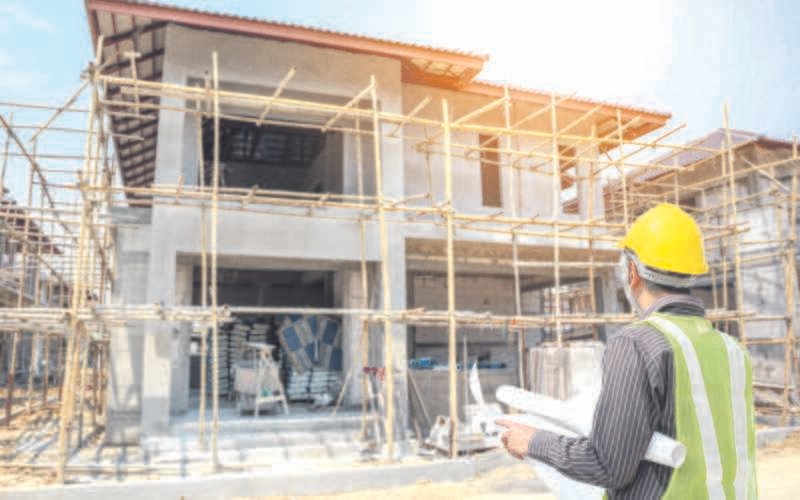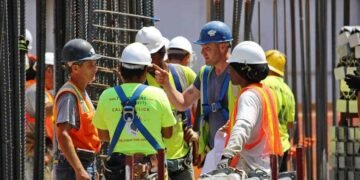Becoming a general contractor is a great choice for a wannabe entrepreneur who is interested in the construction industry. However, you can’t just rely on your trade skills to be successful. You need to be able to do so much more, such as work with a team, manage projects, keep track of budgets, and work closely with clients.
One of the less-recognized aspects of being a good contractor is managing a construction site. You can’t just gather your team and tell them to get to work. There is much more involved that is necessary to keep a project on time, on budget, and as safe as possible. Failure to properly manage a site can lead to disaster. The good thing is that you can learn to make it work. Here are seven tips for managing a construction site.
Also Read: How To Start a Commercial Asphalt Business – A Short Guide
Have a Schedule Ahead of Time
Before you start a project, you need to map out your schedule from start to finish. It needs to be realistic, and it needs to reflect all of the moving parts that are involved in any given project. Issues are always going to pop up, and some delays are inevitable. Make sure that you keep things moving efficiently for tasks that you know your team can handle well. If there are parts of the project that you are unsure of or that you do not have a particular skill with, then you can give yourself more time to complete them. Within this, always be flexible. Mistakes get made, and the unforeseen will happen. Being flexible will keep your project moving forward no matter what.
Keep Track of Your Resources
There are any number of resources that you will need to use on a construction site. This includes materials, equipment, vehicles, and even employees. You need to know where everything is at all times and have access to everything when needed. You can do this with a notebook or a calendar-type schedule, or you can invest in a software solution to help you. Either way, the last thing you want is to be ready to do something on a particular day, and you don’t have everything you need in place to get it done. So keep track, and make sure that you are prepared before the day you need something.
Make Safety the First Priority
Yes, you are running a business. The customer should always be a top priority. However, safety should always be on your mind and the first priority for any task being tackled. You certainly don’t want anyone to get hurt on the job. There is also a practical reason to focus on safety. If someone is hurt, then it also affects your schedule and your budget. You may have to shut down for a period of time to make things safer, and you may have to hire more help to replace the injured worker. Sacrificing safety to do things faster or easier is never the right move. Being safe is the right thing to do, and it also helps your bottom line.
Make Sure You Can Move Things
Any construction project site is sure to have heavy items on site. They could be materials, equipment, tools, appliances, or debris. Nothing is more frustrating than having something in one spot, needing to move it even a short distance, and not being able to do so. Make sure you have the equipment to move heavy objects in different scenarios. Sometimes installations or materials can come in irregular sizes. You may need fork extensions for your forklift to safely and effectively move them.
Delegation and Collaboration
Never forget that you have a team working for you and working with you. Do not try to take on too much yourself. A lot is going on with any construction site, and while you want to supervise things closely, you need to trust and work with your team. Delegate tasks you don’t have to do yourself and get feedback on how to make things run better. This is easier if you’ve built a culture of collaboration and trust within your employees. Your projects will run smoothly, and your company will be more successful if you can work together as a team.
Always Get Bids From Subcontractors
You might think that choosing the same subcontractors you’ve worked with makes things more straightforward. However, that is not always the best thing for the project’s quality or your business. You should always take bids from various subcontractors to work on your project. Using the same providers can get stale, and you want to open your project up to as many ideas as possible. Plus, if you keep using the same ones, they may decide to try and take advantage by charging more than the work is actually worth. Without competing bids, you would have no idea.
Always Know the Codes
If there’s one constant in the construction industry, it’s change. This is especially true when it comes to building codes. Safety standards are always evolving; what is code in one geographic area may not be in another. Make sure that you are always up to date on the applicable safety codes for your project. Your staff and subcontractors should also be up to date, but you can inspect everything to make sure. The last thing you need is for your project to be halted, taken down, or fined because you did not follow safety codes.
There are a lot of moving parts to any construction site. For a new contractor, it can be overwhelming to keep things straight. However, using these tips, you can have a well-managed site and keep things running efficiently and safely.














